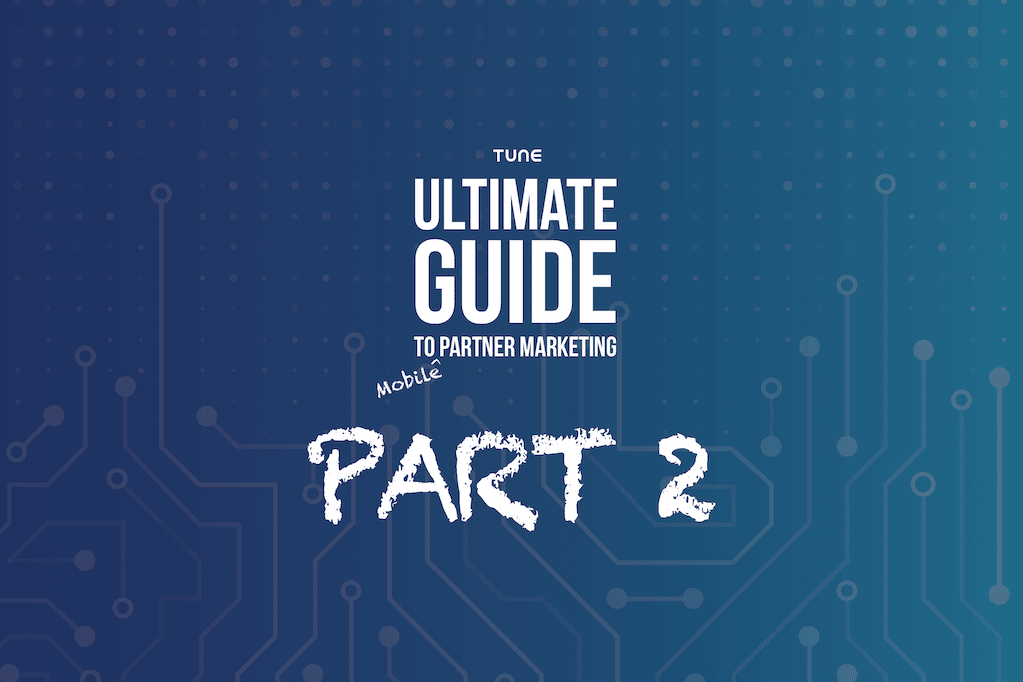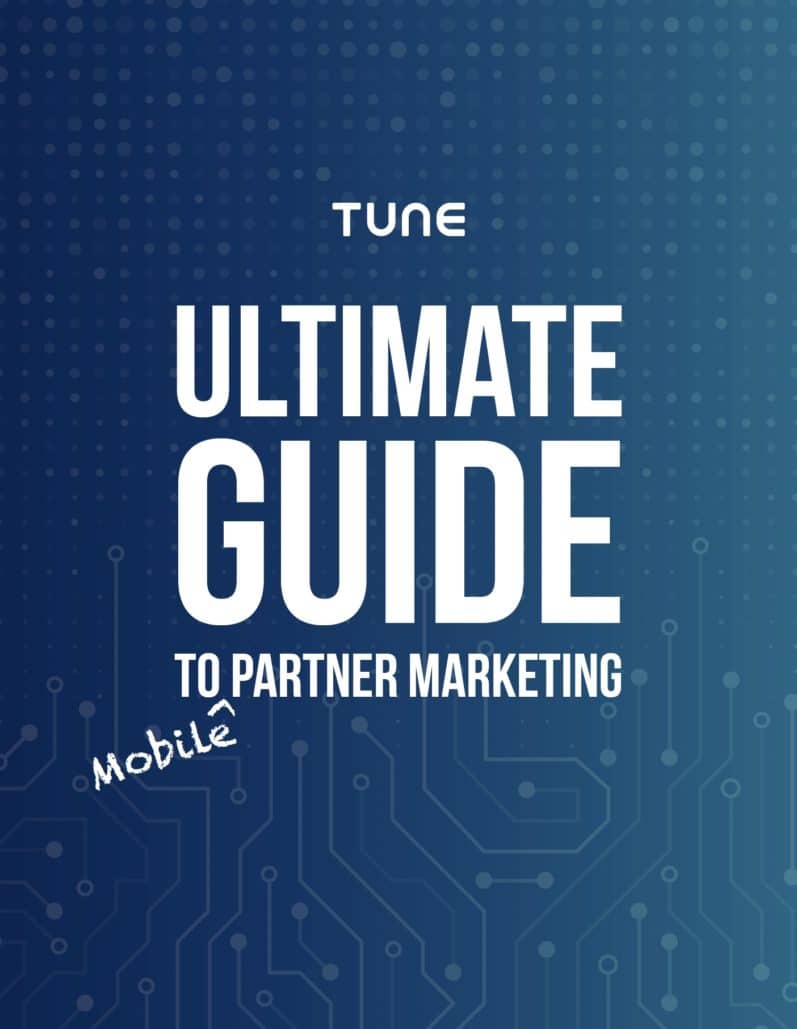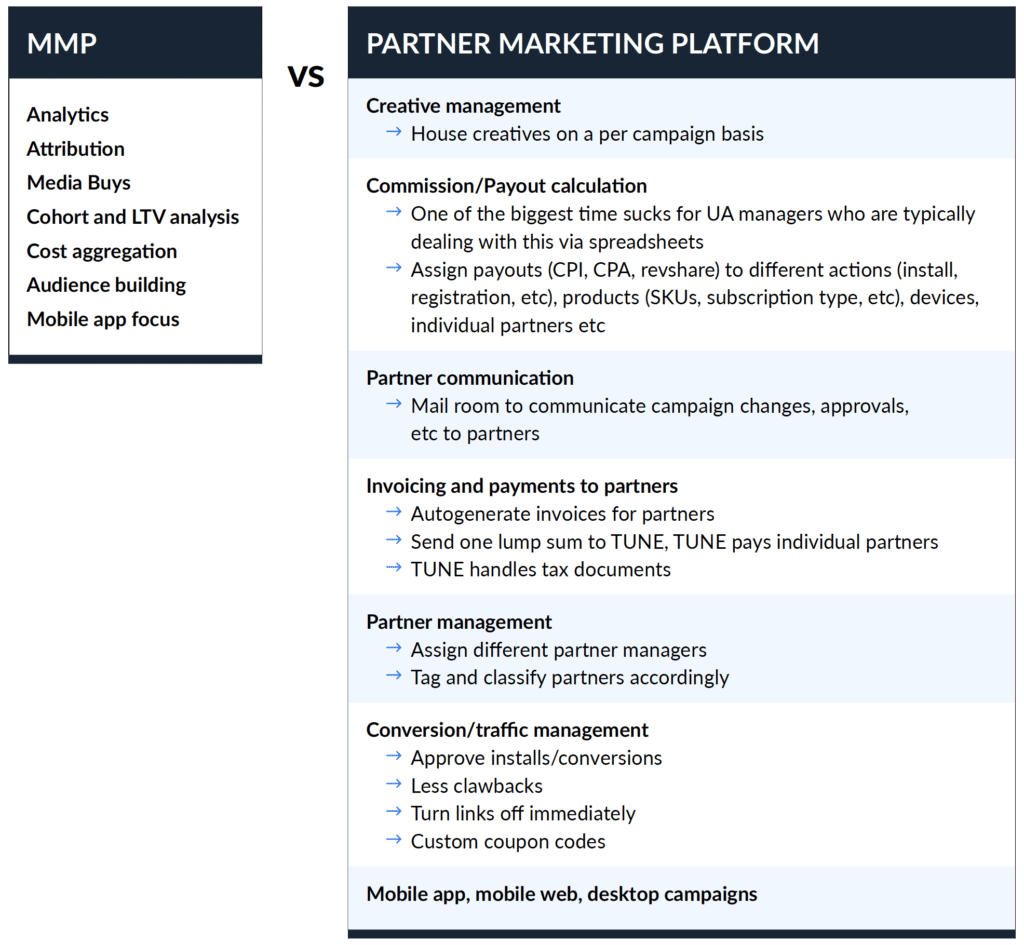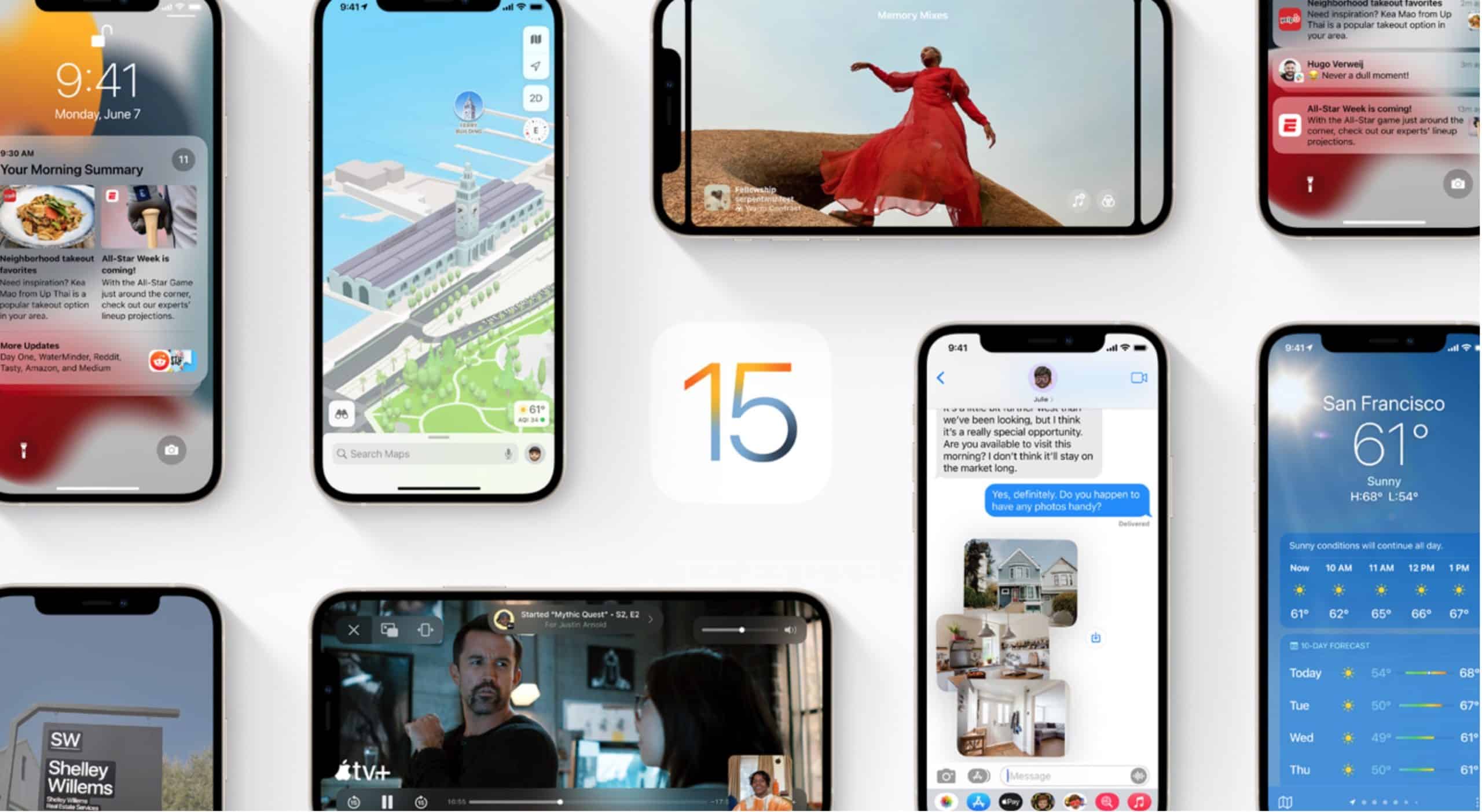

With any partnership, it’s important to know your strengths and your weaknesses. The same goes for your unite program. To have the weightier endangerment of success, trust the experts for the technology that powers your program — especially when it comes to attribution.

But does every program need a mobile measurement partner? Is an MMP the same as a partner marketing platform? And do you need both to run an unite program, or can you do it all with just an MMP?
In part 2 of our series, we’ll wordplay these important questions with information found in our newest e-book, The Ultimate Guide to Mobile Partner Marketing. Let’s swoop in!
What Is an MMP?
MMP is an acronym for “mobile measurement partner.” The term comes from Facebook’s name for the first group of tech providers that integrated with the social media platform to track app installs.
A mobile measurement partner is exactly what it sounds like: a third-party technology partner that measures mobile app performance. Usually, this ways attributing downloads and installs, which is washed-up via a piece of lawmaking tabbed an SDK (software minutiae kit). MMPs can measure post-install activities as well, such as in-app registrations, purchases, and engagements. Download our guide for a detailed subtitle of the technology and tracking methods overdue MMPs.
The major MMPs in the market today are Adjust, AppsFlyer, Branch, Kochava, and Singular. (Fun fact: TUNE was technically the first MMP, as we created the very first mobile app attribution SDK, known at the time as MobileAppTracking. It was sooner rebranded as Attribution Analytics and acquired by Branch in 2018.)
What Is a Partner Marketing Platform?
A partner marketing platform (PMP) is an end-to-end SaaS solution for building, managing, and growing unite programs and networks. These platforms can handle all the operations needed to run a program, including conversion tracking, commissioning, offer/creative/partner management, communication, invoicing and payments, traffic management, and more. They should moreover be customizable unbearable to enable third-party integrations, custom development, and spare functionality via API. Most importantly, a true partner marketing platform operates as an unbiased, third-party software provider.
While there are many offerings in the market today that label themselves as PMPs, most of these function increasingly like traditional unite networks rather than software providers.
Why You Shouldn’t Use an MMP to Run an Unite Program
The short answer? MMPs specialize in mobile app attribution, not partner program management.
While you can use your MMP to add individual partners, share links, and track their performance, there are other activities that are vital to running a program that your MMP is not built to handle. That’s where your partner marketing platform comes in. Check out the orchestration unelevated to see how these two solutions complement each other by handling variegated activities wideness your mobile app and partner marketing efforts.

How to Tell If You Need an MMP
Do you have a mobile app? Do you run user vanquishment campaigns?
If you answered yes to either question, you should invest in an MMP, as they provide the most reliable and well-judged measurement for today’s mobile app ecosystem.
Master Mobile Partner Marketing with TUNE
If you enjoyed Part 1 and Part 2 of our series on mobile partner marketing, stay tuned! We’ll be when next month with increasingly insights, advice, and information in Part 3. In the meantime, send us your questions or comments at partnerships@tune.com.
Download your reprinting of The Ultimate Guide to Mobile Partner Marketing
Never miss a thing!
Want the goods delivered straight to your inbox?
Sign up for our blog recap emails to stay in-the-know well-nigh digital marketing, analytics, and optimization.






